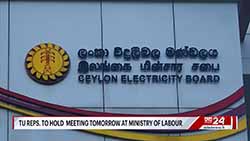Toyota and Nippon Steel agree to historic pay hikes
March 13, 2024 12:04 pm
Japan’s largest employers announced record pay increases on Wednesday, signaling a break from the deflationary mindset that led to the country’s prolonged period of low economic growth known as the “lost decades.”
Every spring, unions and management hold talks, known as shunto, to set monthly wages ahead of the start of Japan’s fiscal year in April. Toyota Motor, Hitachi and Panasonic Holdings were among the companies that on Wednesday fully met labor unions’ demands to raise wages.
Nippon Steel said it will raise monthly wages by a record 35,000 yen ($237), or 14%, surpassing its previous record of 23,000 yen in 1979. The steelmaker, which in December agreed to buy American peer U.S. steel for 2 trillion yen, said, “It is essential to secure promising talent and make all employees more productive.”
Toyota did not disclose details of its wage increases but said it fully met union demands. The Toyota Motor Workers’ Union has demanded bonus payments worth 7.6 months of salary, citing the company’s all-time high annual operating profit forecast of 4.5 trillion yen for the current fiscal year. The union has also proposed specific demands for each job category, up to a 28,440 yen monthly wage increase.
Hitachi and Toshiba said their pay hikes are the largest since the current negotiation style was introduced in 1998.
Only about 16% of workers in Japan are union members, but economists have been closely following this year’s negotiations as a key indicator of monetary policy changes. Core inflation has been 2% or higher for nearly two years, but Bank of Japan Gov. Kazuo Ueda has stressed that a “virtuous cycle” of wage and price increases is necessary to achieve its price stability target, which will give the central bank the confidence to start raising interest rates.
The BOJ will hold this month’s policy meeting on Monday and Tuesday. Economists are divided on whether there will be a change in monetary policy, but most agree an alteration will come no later than next month’s meeting.
Due to low inflation, or deflation, for the past three decades, many Japanese companies have previously only offered seniority-based pay increases, which are tied to the number of years an employee has worked at the company. The current wave of wage hikes is much stronger because management is also offering so-called base-ups in which pay increases regardless of seniority status.
Driving the raises is an acute labor shortage and persistent inflation. A weak yen boosting profits of export-oriented companies has also made it easier for major employers to commit to large pay hikes.
“Some companies have reached agreements quickly, which indicates that they were already planning to raise wages,” said Hisashi Yamada, a professor of human resource management at Hosei Business School of Innovation Management. “After all, the labor shortage is so severe that it will be difficult to attract workers without wage hikes.”
In this year’s negotiation, labor unions are demanding a 5.85% wage hike on average, the largest since 1993, according to the Japanese Trade Union Confederation, or Rengo, the country’s largest labor confederation. Rengo will announce the first tally of negotiation results on Friday.
The figure is much higher than what economists had expected, prompting the yen to rally against the U.S. dollar in recent days amid speculation that the BOJ will end its negative interest rate policy this month.
According to a February survey by the Japan Center for Economic Research, the average forecast of a panel of economists was that shunto would result in a wage hike of 3.88%.
Last year, major companies agreed to wage increases of 3.58%, the largest hike in 30 years, according to Rengo. But pay hikes have failed to keep up with the rise in prices. Inflation-adjusted real wages declined for 22 straight months until January, suppressing consumer appetite.
Household spending in January fell 6.3% from a year earlier, its biggest drop in nearly three years. The weak private consumption has been a drag on economic growth.
Views are divided on whether wage hikes will translate into stronger consumption and whether the trend will continue.
Spring wage increases at major companies hit double digits in the 1960s and 1970s but have hovered around 1% to 2% since the early 2000s, according to government statistics.
Takeshi Niinami, CEO of beverage maker Suntory Holdings and Chairman of the Japan Association of Corporate Executives, on Tuesday said he expects big companies to raise wages by more than 5% this year, which he said would help real wage growth turn positive “around May or June.”
“With bonuses coming out in July, there will be more positive news on consumption” heading into the summer, Niinami said.
But Toshihiro Nagahama, chief economist at Dai-ichi Life Research Institute, said the growth in basic salaries will be partly offset by company efforts to reduce overtime.
“There will be additional restrictions on working hours for certain jobs such as truck drivers,” he noted, referring to a new law limiting overtime hours that takes effect in April. “I am skeptical that nominal wages will be able to surpass inflation in the short term.”
Marcel Thieliant, senior Japan economist at Capital Economics, expects this year to mark “peak wage growth.”
“This year’s inflation will almost certainly be lower than last year,” he said, “so it will be difficult for Rengo to justify another round of pay hikes as large as this year in the next shunto.”
The outcome of union-led negotiations only reflects the sentiment of large business enterprises, and the focus will be on whether wage increases will spread to small and midsize enterprises, which are struggling with rising prices and staffing difficulties.
A government survey of these companies last year showed that they were only able to pass on 46% of their cost increases to customers.
Source: Nikkei Asia
--Agencies











